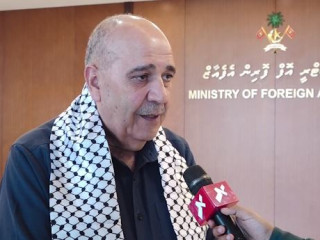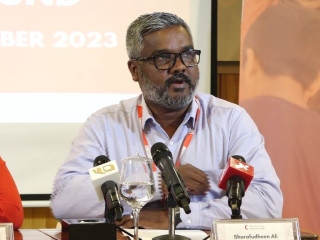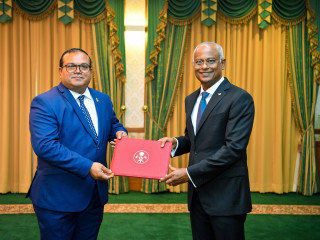Nurses' allegations that the Indira Gandhi Memorial Hospital (IGMH) had been biased in distributing flu vaccines to its staff has been denied by its management.
Nurses at the hospital alleged on Tuesday that it had neglected to prioritize administering vaccines to personnel in wards dealing with flu patients, and instead had dispensed them to a ward where a senior government official’s relative is posted.
While staff assigned to the emergency room, the intensive care unit, and the hospital’s flu clinic, are to be given priority; the nurses claimed that the ward – in no way relevant to the recent outbreak of H1N1 – were vaccinated first, adding that this was done at the behest of the government official’s relative.
The hospital management told RaajjeMV on Wednesday that the hospital had disbursed vaccinations only to those that immediately require it, and that staff in the aforementioned wards were given priority.
They further said that the hospital’s vaccine reserves have been severely deplenished, and that vaccinations are currently limited to those to whom H1N1 can be fatal.
Pregnant women, children, the elderly, and those with existing respiratory conditions are susceptible to manifesting the influenza strain more severely.
Dr. Abdulla Niyaf, a member of the taskforce assembled to tackle the outbreak, said on Monday that nation’s vaccines reserves have been limited as well, and that authorities were discussing ways to acquire more with health facilities and the WHO (World Health Organization).
At Monday’s press conference – held jointly by IMGH, ADK Hospital, and the Health Protection Agency, it was declared that the first case of the outbreak was discovered in January, with the number of cases increasing rapidly throughout February and March.
The agency had revealed at the conference that there were 51 confirmed cases of H1N1 patients, though this figure is more than half the number it had announced earlier that day.
The IGMH’s flu clinic, which it established in a school down the road from the hospital, had seen a total of 600 patients by Tuesday evening.
Academic institutions, including grade schools, colleges, and universities, have been closed to deter spreading. Citizens have been advised to limit gathering in public as well.





